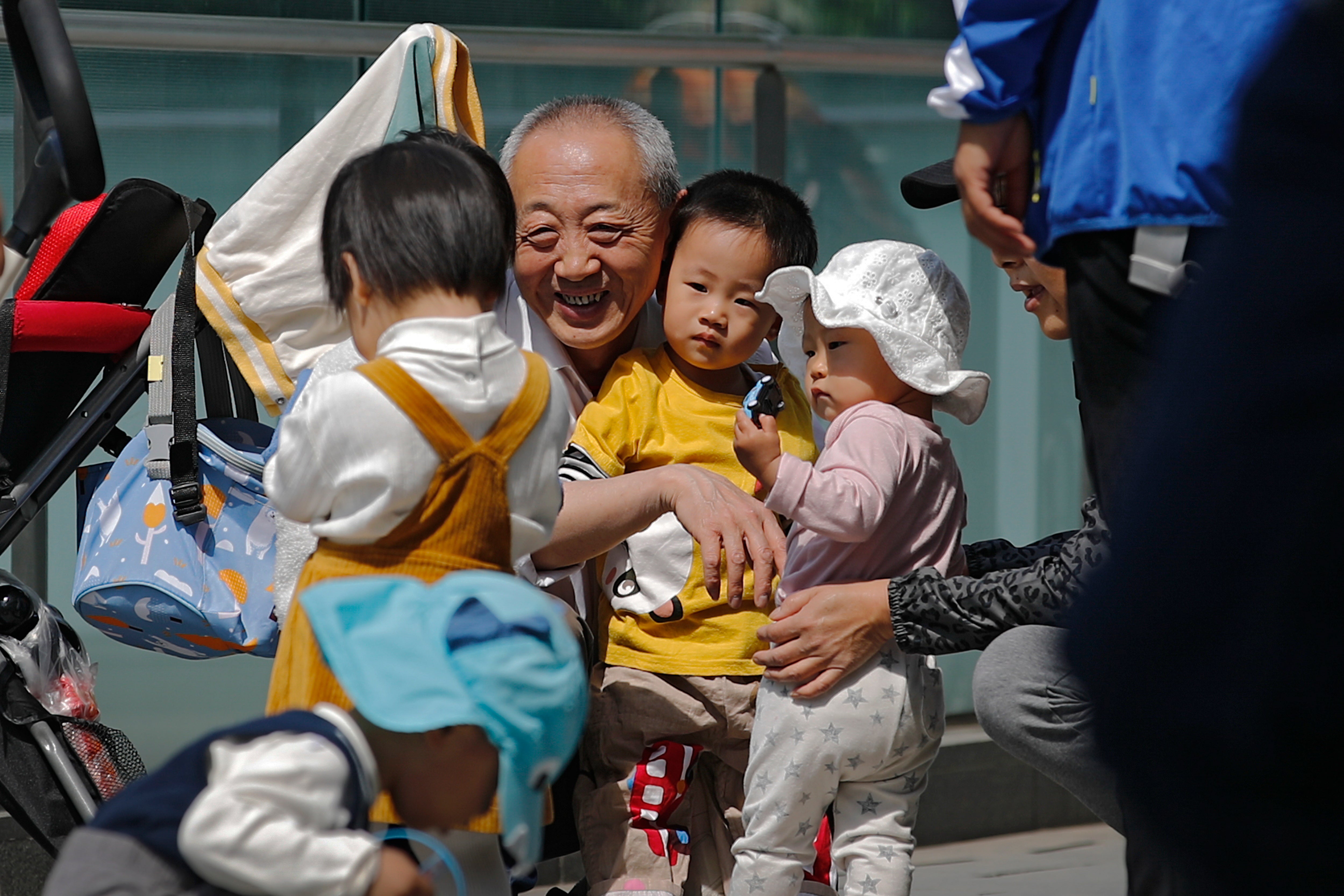Three child policy won’t solve China’s birth rate crisis, say experts
Analysis: The strict rules aren’t the only reason keeping parents away from having a third child

Your support helps us to tell the story
From reproductive rights to climate change to Big Tech, The Independent is on the ground when the story is developing. Whether it's investigating the financials of Elon Musk's pro-Trump PAC or producing our latest documentary, 'The A Word', which shines a light on the American women fighting for reproductive rights, we know how important it is to parse out the facts from the messaging.
At such a critical moment in US history, we need reporters on the ground. Your donation allows us to keep sending journalists to speak to both sides of the story.
The Independent is trusted by Americans across the entire political spectrum. And unlike many other quality news outlets, we choose not to lock Americans out of our reporting and analysis with paywalls. We believe quality journalism should be available to everyone, paid for by those who can afford it.
Your support makes all the difference.On Monday afternoon, the Chinese government announced a major shift from its decades-long one-child policy, saying it will soon allow couples to have up to three children.
After decades of authoritarian measures on family planning, the change means Chinese parents have seen the number of children they are allowed to have triple in less than 10 years – two children were allowed from 2016.
Announcing the decision, taken during a politburo meeting chaired by president Xi Jinping, Chinese state media framed it as a necessary step towards boosting the country’s birth rate and fixing the mounting issue of its ageing population. Experts believe the new reforms may simply not be enough, however.
The government’s worry arises from the latest once-in-a-decade census data, made public earlier in May, that revealed that China’s population is growing at its most sluggish pace since such records began. It showed that the country added only 72 million to its population in the past decade, the equivalent of a little over 5 per cent. The census result showed that along with China’s population growth decline, its demographic structure is “deteriorating, with a growing ageing population”.
For Chinese couples, it will be the first time in 40 years that they will be legally allowed to have three children, since the one child policy was imposed in 1980.
The problem the government faces now, though, is that it must deal with a cultural shift since the 1970s that means the strict rules are no longer the only reason keeping parents away from having more children.
Steve Tsang, director of SOAS’s China Institute, told The Independent: “The main reasons why the reproduction rate continues in a downward trend have more to do with the increasing costs of raising a child, the lack of daycare facilities, the discriminatory treatment of women and the increasing need for families to have two incomes to stay afloat.”
He believes changing the number of children permitted will “only affect those who can afford to have more children”.
China’s earlier relaxation, announced in October 2015 and coming into effect the following year, did not bring about a drastic change in its population growth decline – the trend continued in 2017 and onwards. Mr Tsang believes the new rules will also have no more than a “marginal effect”.
“The real significance of the change is that it reflects a belated recognition by the Chinese government that China faces a demographic deficit, one that its previous policy entrenched,” he said.
China’s controversial policies on family planning have long raised concerns over human rights, with an enforcement system of fines for violators and even forced abortions.
In a statement, Joshua Rosenzweig, the head of Amnesty International’s China Team, said: “Governments have no business regulating how many children people have. Rather than ‘optimising’ its birth policy, China should instead respect people’s life choices and end any invasive and punitive controls over people’s family planning decisions.
“Under such a policy, couples could still be penalised for their decisions around childbirth,” he wrote. “Everyone, regardless of marital status, should be entitled to sexual and reproductive rights, including whether and when to become pregnant.”
Join our commenting forum
Join thought-provoking conversations, follow other Independent readers and see their replies
Comments